Guest Speaker: Yes, Chefs Can Get Along with Owners
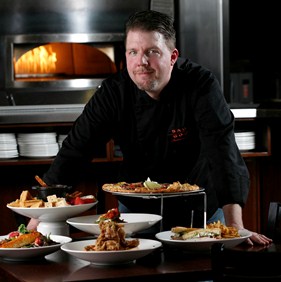 The executive chef of two-unit Saul Good Restaurant & Pub in Lexington, Ky., admits to learning a lot of hard lessons about how chefs and owners should get along, but he’s gotten a crash course in doing it the right way from founder Rob Perez. Chef Mayer shares some insights into why he believes “ours is not the typical owner-operator and chef relationship.”
The executive chef of two-unit Saul Good Restaurant & Pub in Lexington, Ky., admits to learning a lot of hard lessons about how chefs and owners should get along, but he’s gotten a crash course in doing it the right way from founder Rob Perez. Chef Mayer shares some insights into why he believes “ours is not the typical owner-operator and chef relationship.”
By Jeffrey Mayer
I’m like a lot of chefs: a culinary dreamer who has a certain philosophy about the foods I want to cook. But when I first started talking to Rob about Saul Good, I saw the opportunity to work with him as a chance to learn a hell of a lot from a successful, business-savvy guy, somebody who knows how to make a whole concept work.

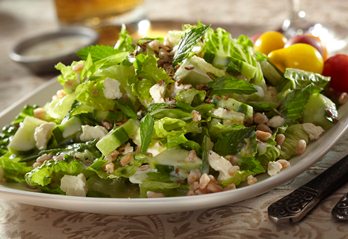 Mediterranean salads top the list when casual diners seek change.
Mediterranean salads top the list when casual diners seek change.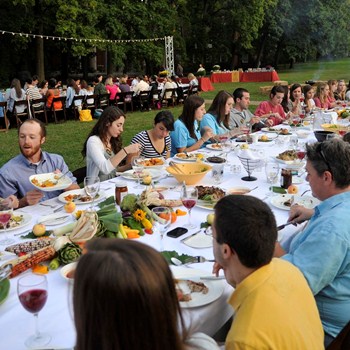 “Artisan” on the menu used to entice diners. Not so much today. And “local” trumps “organic.” Meanwhile, overall restaurant spending is expected to grow.
“Artisan” on the menu used to entice diners. Not so much today. And “local” trumps “organic.” Meanwhile, overall restaurant spending is expected to grow.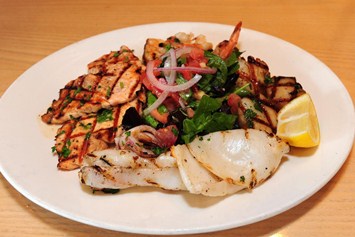 If any restaurant understands olive oil, it’s one named Extra Virgin. Here, the executive chef of the Arlington, Va., eatery extols the virtues of olive oil beyond the flavor it imparts to dishes.
If any restaurant understands olive oil, it’s one named Extra Virgin. Here, the executive chef of the Arlington, Va., eatery extols the virtues of olive oil beyond the flavor it imparts to dishes.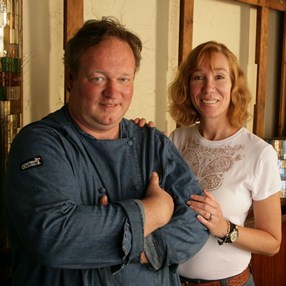 When someone has been imprisoned for 20 years, oftentimes corporations won’t hire him or her. Galen Scott Sampson, through his Baltimore restaurant’s apprenticeship program, is changing that mindset by building passionate, experienced culinarians who are difficult to refuse.
When someone has been imprisoned for 20 years, oftentimes corporations won’t hire him or her. Galen Scott Sampson, through his Baltimore restaurant’s apprenticeship program, is changing that mindset by building passionate, experienced culinarians who are difficult to refuse. A short, focused speech poses an opportunity for students to make an impression and explain themselves. It is also a way to build interest in what they are doing or want to do, as well as enlist support and sway opinion.
A short, focused speech poses an opportunity for students to make an impression and explain themselves. It is also a way to build interest in what they are doing or want to do, as well as enlist support and sway opinion. In a continuation of last month’s focus on teaching nutrition within a short class period, Chef Weiner explains how to emphasize the remaining six of 10 unchanging basic facts.
In a continuation of last month’s focus on teaching nutrition within a short class period, Chef Weiner explains how to emphasize the remaining six of 10 unchanging basic facts.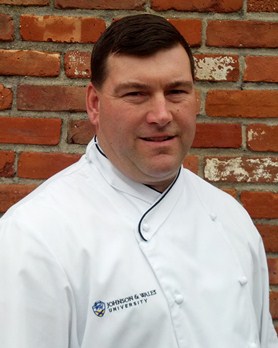 A combination high school, urban farm and environmental education center in Connecticut is leading the way as a model in healthy lifestyles for students from all socioeconomic backgrounds.
A combination high school, urban farm and environmental education center in Connecticut is leading the way as a model in healthy lifestyles for students from all socioeconomic backgrounds.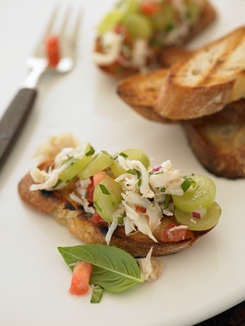 An e-learning module focusing on the versatility, nutrition and palate-pleasing power of California table grapes.
An e-learning module focusing on the versatility, nutrition and palate-pleasing power of California table grapes.